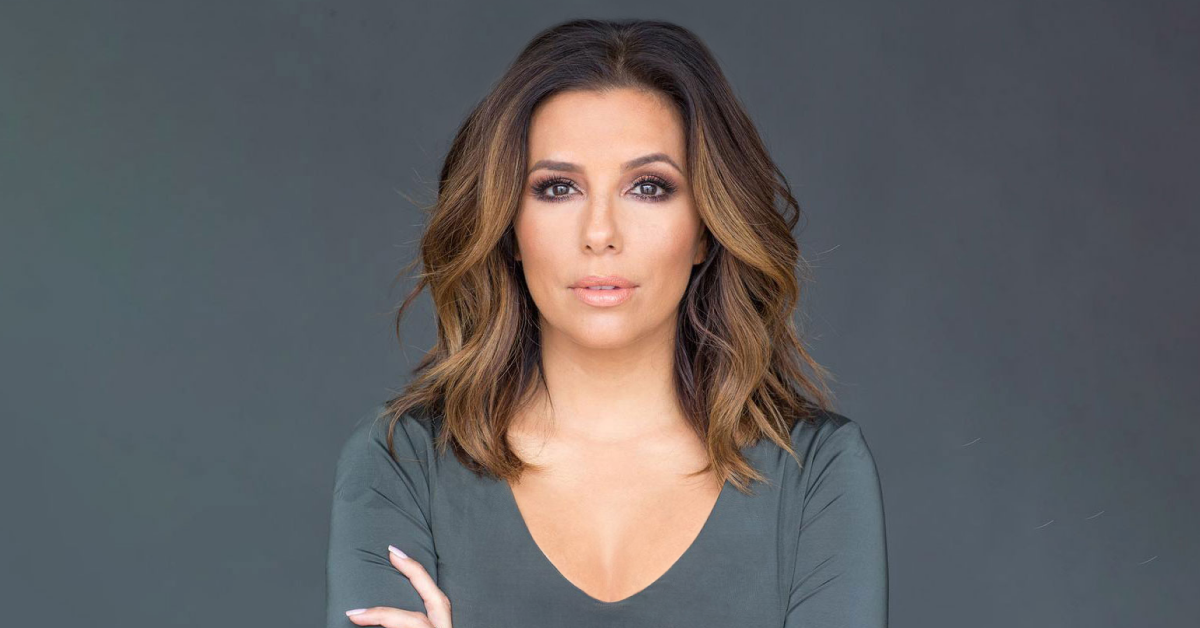Eva Longoria may have become a household name through her starring role on the hit series Desperate Housewives, but since then she’s evolved into a triple threat, adding directing and producing to her repertoire. Throughout her 20-year career in entertainment, Longoria has come to understand one truth intimately: Women — and particularly women of color — do not have access to the same talent pipeline as white men.
“Studios and networks and our industry are so used to hiring Bob and Tom and Bill. And Bob and Tom and Bill are great because they have so much experience under their belt. We need the job to get the experience, but we can't get the job because we don't have the experience. So it's like the chicken or the egg for women and, specifically, for people of color,” she says. “We have to be twice as good, twice as prepared, twice as fast, twice as efficient. There are just so many rooms you're in that you have a disadvantage, and that's not just in our industry, that's across all industries.”
Her mission to expand representation and opportunity for Latinx women goes beyond Hollywood. Since 2012, the Eva Longoria Foundation has helped Latinas build better futures for themselves and their families through educational programs, scholarships, and mentorship opportunities. She is also a Co-Founder of Poderistas and the Latino Victory Fund, an organization dedicated to growing Latinx political power. This work has earned Longoria recognition as one of People Magazine’s Women Changing the World.
Sitting down with Cindy Lone, Head of Hispanic/Latinx Talent Engagement at Goldman Sachs, for an exclusive conversation with Chief Members, Longoria shed light on her decades of impact, and how saying “no” helps her do it all.
On the Importance of Saying ‘No’
“The reason I can do so much is because I say ‘no’ to so much. I'm super laser-focused on my goals and what I want to achieve in everything — in my directing career, in my acting career, in my philanthropy, in my activism. If it doesn't align with what I want to accomplish, it's an easy ‘no.’ Before I started my foundation, I would get requests for everything — to show up at every fundraiser, every charity gala. It was overwhelming. I was like, I can't possibly focus on all of these things.
“I did the research and was like, Where am I gonna make effective, sustainable change? I'm not going to cure AIDS in Africa. I don't think I have the reach or the billions of dollars in funding that that takes. I knew I wanted to focus on education and on Latinas, so that's what my foundation does.
“I just cannot do everything, and I really want to make a big impact in this one thing. Even with this one family, with this one child, you know? I think, when you do that, you see better results.”
On Her Greatest Asset
“Especially now that I have a child, time is my wealth. That's my greatest asset, and anything that pulls me away from my son has to be really, really worth it… When you are no longer the center of your universe, those decisions are much easier.
“I used to say, ‘Ugh, I have to get home to bathe Santi. I have to hurry up and make dinner for Santi. I have to do this or that.’ You change it to ‘I get to.’ ‘I get to go home and bathe Santi. I get to go home and have dinner with Santi. I get to do things that really mean something.’ Just changing the way you speak to yourself changes your outlook, and you become way more positive.”
On Why She’s Focused on Promoting Latinx Financial Literacy
“Latinas start small businesses at six times the national average. We are fueling the small businesses, and that small business is the economy of this country. It's thanks to Latinas with their entrepreneurial spirit, and they're doing it without access to not only capital to start or grow their business, but also [without] access to business tools, business preparation, and the books, and P&L, and accounting.
“There's so many things in financial literacy that we need to learn as entrepreneurs. My foundation provides a lot of programs and links women to access to that capital. But things aren't gonna change at those big banks unless we really demand it. It's an uphill battle, for sure. Banking discrimination is alive and well, not only in business loans, but in housing loans, in a lot of ways. I remember growing up in my Latino family, ‘bank’ was a four-letter word. My dad had his money in the mattress. There's a huge distrust in that institution, and deservingly so. So I think there's a lot of work to be done: financial literacy for our community, and then also educating the financial industry.
On Trading ‘Lean In’ for ‘Reach Back’
“Specifically with STEM, there are so few Latinas. In the STEM field, I think 3% of STEM jobs are held by women and of the 3%, 1% are Latinas. That's a low, low, low number. My thesis when I got my master's [in Chicago Studies] was about Latinas in STEM fields and trying to figure out the common denominators. Like, How did that woman become head engineer at Exxon? How was that woman the dean of biology at MIT? What did they all have in common? They're anomalies, and they shouldn't be, and they won’t be.
“Latinos are the fastest-growing demographic in the United States. We are the future workforce of America and this globe. My goal with my foundation and STEM fields is to push more Latinos toward that career path, because sometimes they don't even know what exists… just to expose them in our community to job opportunities that aren't traditionally filled by us.
“There's so many organizations doing great things. Don't reinvent the wheel. Go tap into somebody else's ecosystem and collaborate, because it'll be much easier to pull people up. [We need] to get away from this notion of lean in, lean in. No, it’s reach back, reach back.”
On the Challenge of Providing Mentorship as a Woman of Color
“Women of color, specifically, we have different barriers than other communities. We usually don't have the time to mentor. If I just barely made it out of college, and I have a job, and I have a family, and I have no car but I still have three jobs cause I have to pay my student loans. There's a domino effect of socioeconomic factors that probably prevent a lot of our women from participating as a mentor. I would encourage the young Latinas to find mentors of all colors. Believe me, I get the, ‘I want somebody who looks like me.’ But, at the same time, I do think you're gonna find inspiration and intellect and advice from a lot of different places.”

